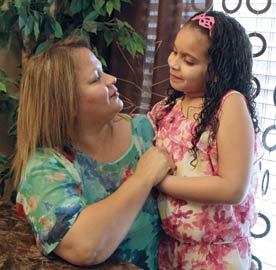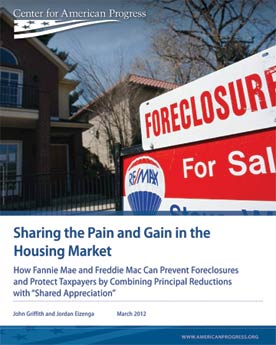
Photo by Flickr user SSWJ, CC BY-NC-ND 2.0
Reading
Center for Housing Policy Various publications on the intersection of housing and health.
Framing the Issues — The Positive Impacts of Affordable Housing on Health, by Jeffrey Lubell, Rosalyn Crain, and Rebecca Cohen. Center for Housing Policy and Enterprise Community Partners, 2007.
Health Affairs: Linking Community Development and Health (special issue). Vol. 30, No. 11, November 2011.
“Housing Affordability and Health Among Homeowners and Renters,” by Craig Evan Pollack, Beth Ann Griffin, and Julia Lynch. American Journal of Preventative Medicine, Vol. 39, no. 6, 2010: pp. 515Ð21.
“Housing as a Pathway to Better Health and More Opportunity,” by Sandra B. Henriquez and Dr. Raphael Bostic. The Huffington Post, April 11, 2012.
“How Housing Matters to Families and Communities: A Commentary Series.“ Spotlight on Poverty and Opportunity, Nov. 2, 2011ÐJan. 12, 2012. Includes commentaries on health and housing from HUD Secretary Shaun Donovan and HHS Secretary Kathleen Sebelius, Michael Stegman, Children’s HealthWatch, and others.
“Moving Forward — Connecting the Dots: Public Health, Smart Growth, and Affordable Housing,” by Jeffrey Lubell. NHC Open House Blog, Dec. 13, 2011.
“Rebuilding Neighborhoods, Restoring Health: A report on the impact of foreclosures on public health,” by Causa Justa :: Just Cause and The Alameda County Health Department, September 2011.
Funding Opportunities
Enterprise Green Communities
(800) 624-4298
The Enterprise Green Communities program funds green building activities, including training and integrative design. Funding has gone to building operators, resident groups, nonprofits, and others.
Health Impact Project
(202) 540-6012
The Health Impact Project collaborates with different organizations around the country to promote and support the use of health impact assessments (HIAs). (See page 20.) This support includes technical assistance grants to organizations performing HIAs.
Healthy Homes Program
U.S. Department of Housing and Urban Development
(202) 708-1112
Healthy Homes grants are available for nonprofits, for-profits, state and local governments, and other groups focusing on research around effective home hazard assessments and interventions. Grants are also awarded for public education programs that cover home hazards. (See page 18.)
Human Impact Partners
(510) 452-9442
Human Impact Partners provides technical assistance to organizations performing health impact assessments (see page 20) and works directly with communities to conduct HIAs, building their capacity to work with other stakeholders and use HIAs for positive change.
The Kresge Foundation
(248) 643-9630
The Kresge Foundation’s health program seeks to promote the well-being and physical health of low-income and vulnerable populations by increasing access to high-quality health care, improving environmental conditions, and supporting multisector work on the social and environmental factors that negatively affect poor and at-risk communities.
Robert Wood Johnson Foundation
(877) 843-7953
The Robert Wood Johnson Foundation funds projects that address health problems for vulnerable populations. Funding areas include childhood obesity, health coverage, public health, and quality of/equity in health care. (See page 28.)
Resource Organizations
Active Living by Design
(919) 843-2523
A project of the North Carolina Institute for Public Health, ALBD has a grant program and provides technical assistance and strategic consultation to communities, professionals, nonprofits, and funders on designing to encourage healthier living.
American Lead Poisoning Help Association
ALPHA is made up of professionals and citizens from around the country who are dedicated to preventing childhood lead poisoning by spreading awareness about the dangers of lead exposure.
Center for Health, Environment & Justice
(703) 237-2249
CHEJ is a national nonprofit organization that provides technical assistance to community groups that work at the grassroots level on environmental health and justice. CHEJ seeks to eliminate exposure to toxic hazards (waste, chemical plants, pollutants, etc.) by helping to build democratic, community-based organizations that can address these public health concerns.
Center for the Study of Social Inequalities and Health at Columbia University’s Mailman School of Public Health
(212) 305-8213
The mission of the Center for the Study of Social Inequalities and Health is to produce and disseminate knowledge about inequalities and health through theoretical research. Among its many goals are to promote diversity within the staff, faculty and student body of Mailman School of Public Health and train students to be leaders in researching inequalities in health.
Children’s Health Watch
(617) 414-6366
Children’s Health Watch researches and analyzes the effects of public policies and economic changes on the health and well-being of children. Some of their research examines the links between nutrition and housing.
Energy Justice Network
(215) 743-4884
EJN is a grassroots organization supporting communities that organize around energy justice. EJN advocates for clean, zero-emission, zero-waste energy for all communities, and provides technical assistance and guidance to other grassroots organizations with similar missions.
Green and Healthy Homes Initiative
(410) 534-6447
GHHI is a national public-private partnership that coordinates and aligns various funding sources and programs so that multiple health, safety, and energy issues can be addressed at once for a given housing unit. GHHI is working on creating federal standards for green and healthy housing, and works with nonprofits to train personnel and develop retrofit programs.
Healthy Eating Active Living Cities Campaign
(510) 302-3387
The HEAL Cities Campaign supports healthy-encouraging policies around land use, healthy foods, and employee wellness, and welcomes California cities to apply to for consideration as a HEAL site.
Healthy Food Financing Initiative
HFFI, a program of the U.S. Dept. of Health and Human Services’ Office of Community Services, supports projects that increase access to healthy and affordable food options in communities that currently lack them.
Integrated Pest Management in Affordable Housing
(410) 992-0712
Tools, resources, and trainings for property managers, residents, and pest management professionals to help them implement integrated pest management programs.
Mapping Our Voices for Equality
MOVE promotes healthy eating, increased physical activity, and reduced tobacco use in King County, Washington, through an interactive mapping program that could be a model for other areas.
National Center for Health in Public Housing
(703) 812-8822
NCHPH provides training and technical assistance to federally-funded health centers so they can increase access to health care and enhance the delivery system for residents in public and assisted housing.
National Center for Healthy Housing
(410) 992-0712
NCHH offers training and technical assistance to help agencies and health departments adopt cost-effective green and healthy housing practices.
National Center for Medical-Legal Partnership
(617) 414-3630
NCMLP supports a patient care model that links attorneys with healthcare professionals to address the “non-medical determinants of health,” such as housing conditions, safety, and education. NCMLP facilitates a national network of institutions taking this approach and provides technical assistance to them.
Office of Healthy Homes and Lead Hazard Control, U.S. Dept. of Housing and Urban Development
(202) 708-0310
Established by Congress in 1991, OHHLHC provides grants for communities to address lead paint hazards and set lead remediation standards.
PolicyLink Center for Health Equity and Place
(510) 663-2333
The PolicyLink Center for Health Equity and Place seeks to eliminate unfair social and economic conditions that lead to or have led to health disparities by advocating, providing technical assistance, and employing research and data analysis.
U.S. Green Building Council Affordable Housing Initiative
(800) 795-1747
USGBC is a membership organization of builders, nonprofits, and governments. Its Affordable Housing Initiative develops technical assistance and educational tools that bring sustainable building to the affordable housing sector.





Comments